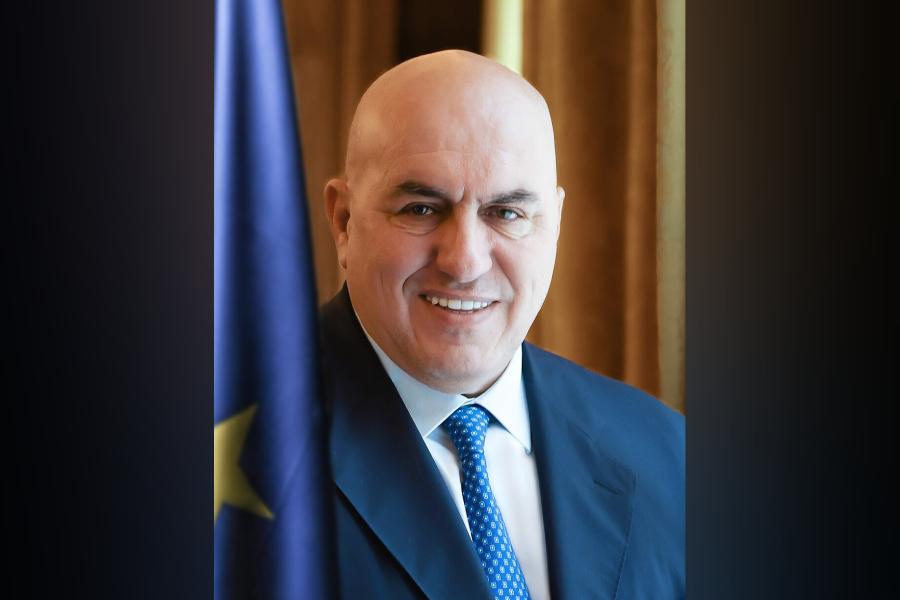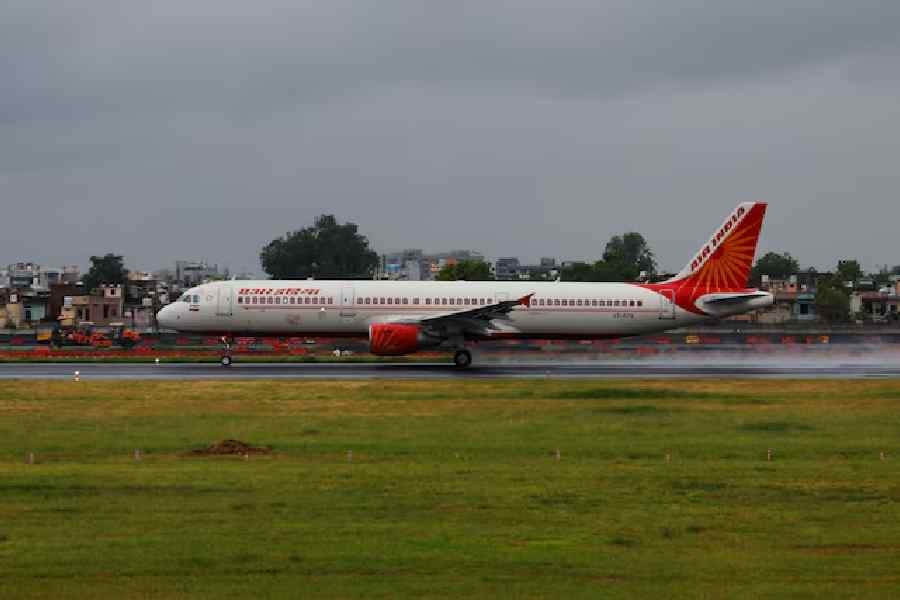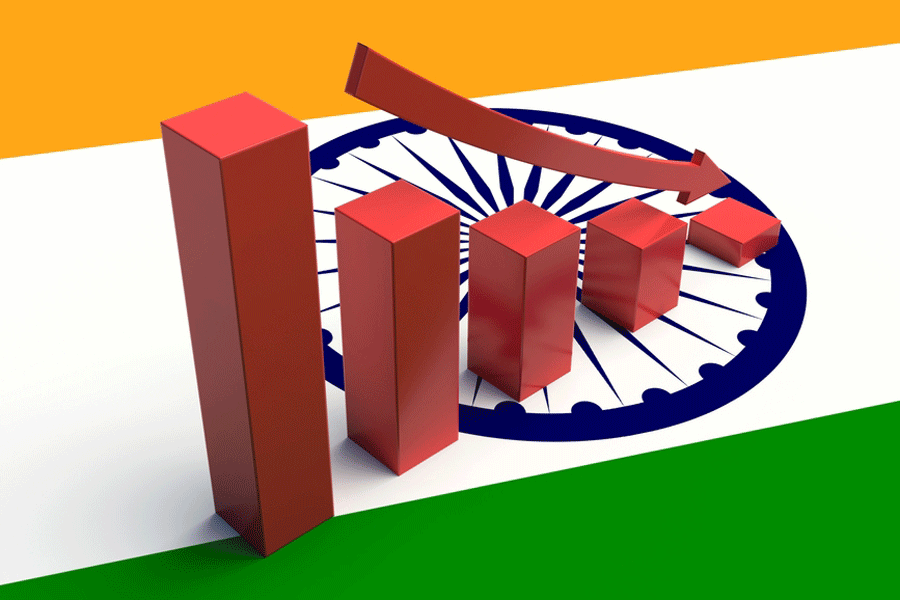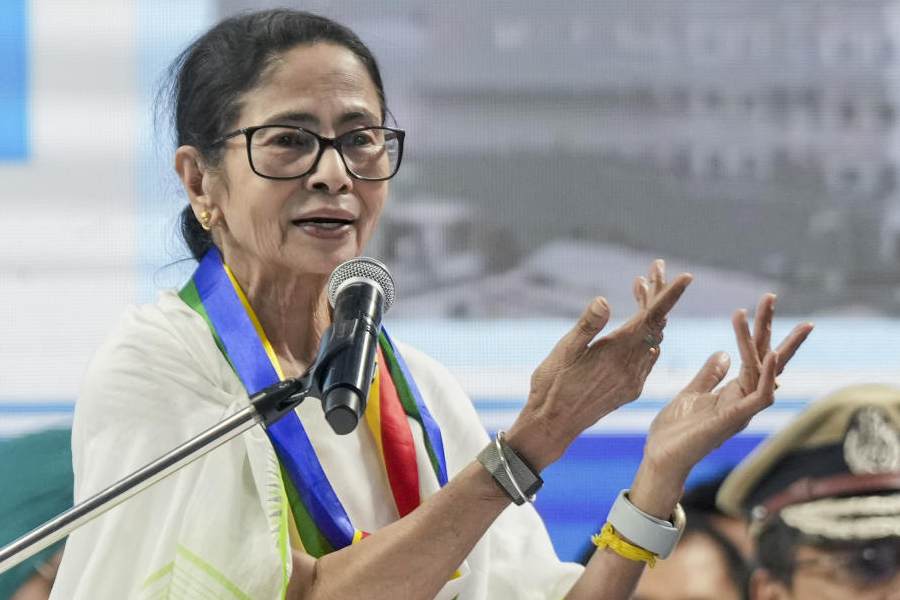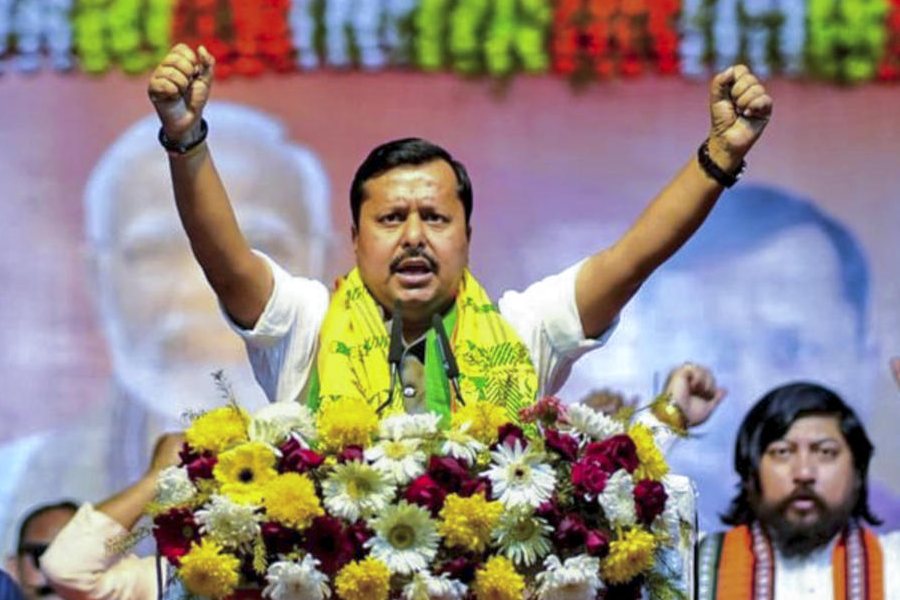 |
 |
| Hillary and Tenzing: Mounting row |
London, June 1: Buckingham Palace told The Telegraph that there had been no intention to discriminate between Edmund Hillary and Tenzing Norgay when the former received a knighthood and the latter a George Medal after their historic ascent on the Everest on May 29, 1953.
The controversy over whether Tenzing, too, should have been given a knighthood has been reopened by his grandson, Tashi Tenzing, who complained in an interview: “My grandfather did not get the recognition he deserved. He should have been knighted by the Queen for the achievement, along with Hillary and (John) Hunt (the leader of the 1953 British expedition).” Tashi added: “It was not fair. If the Queen had knighted my grandfather, it would have been a nice gesture. Without him, Hillary would never have reached the summit.”
In an off-the-cuff remark, Mark Tully, the BBC’s former correspondent in India who is in London at the moment, hinted at the class distinctions which existed in 1953. “Sherpas were regarded as coolies,” he remarked, in a light-hearted comment. The truth of whether Tenzing could have been given a knighthood is much more complex. Technically, as a citizen of Nepal, he could not, while Hillary, a national of New Zealand, a country whose head of state was the Queen, could.
However, Tenzing could have been given an “honorary knighthood”, although this would not have entitled him to prefix “Sir” before his name.
In any case, in 1953, the governments of India and Nepal — and India had a claim on Tenzing because of his Darjeeling upbringing — did not allow its nationals to receive foreign honours.
In all this, Hillary, who will be 84 on July 20, emerges with his reputation unscathed. On reaching the top of the Everest, he took a photograph of Tenzing holding aloft a pole with the flags of the Britain, Nepal, India and the UN. But he did not even think of getting Tenzing to take a picture of himself, hardly the actions of a man out to grab all the glory for himself, mountaineers point out on Hillary’s behalf. His subsequent actions since 1953, as high commissioner in India, his continued support for the people of Nepal and his friendship with the family of Tenzing, who died in 1986 — Hillary attended his friend’s Buddhist cremation — render him above criticism.
The fairest assessment that can be made from all the available evidence is that if the climb were to take place today, there would be an obvious equivalence in the honours given to the two men. However, back in 1953, when class distinctions were much sharper and an assumption made about the intrinsic superiority of the white man, the British government probably did not even think of giving an honorary knighthood to a sherpa.
Judging events of 1953 by today’s moral standards is a risky venture. But the British probably thought that by awarding Tenzing a George Medal, which, like its military equivalent, the George Cross, is given for exceptional bravery and valour, they had pulled out all the stops.
After checking records at Buckingham Palace in response to a request from The Telegraph, a spokeswoman for the Queen said: “Edmund Hillary and Tenzing Tenzing both came to Buckingham Palace on July 16 and were both received by the Queen. Hillary received a KBE (knighthood) and Tenzing a George Medal from the Queen. There are no photographs of the occasion because, in those days, not everything was photographed.”
She added that the George Medal, which is circular in shape, and the George Cross, were instituted by King George VI on September 24, 1940, and mostly awarded between 1940 and 1945 when World War II ended.
“In deciding who should get what, the Queen took advice from her ministers,” the spokeswoman added.
This is technically correct. Although honours are given by the Queen, the names are proposed by the government of the day, which has a vetting procedure.
Since news of the successful assault on the Everest was held back from the public until the Queen’s actual day of coronation, the decision to give a knighthood to Hillary would have been pretty much automatic.
More information on what happened in 1953 was provided was another Buckingham Palace spokesman, who said: “Hillary received the KBE because the Prime Minister of New Zealand advised the Queen of New Zealand (the young Queen Elizabeth) that he should.”
The advice that Tenzing should receive a George Medal would have come from the British government of the day, which was headed was Winston Churchill, enjoying his second term as prime minister.
Asked why Churchill’s government did not think of giving Tenzing an honorary knighthood, the spokesman responded: “That is a question for the government (that is Tony Blair’s press office at 10, Downing Street).”
Although there are different classes of honorary knighthoods, the system was started in 1917, since when nationals of countries as varied as Argentina, Chile and Denmark have been honoured. In recent years, recipients have included Bob Geldoff, the singer, President Ronald Reagan and, last week, Bob Hope, the British-born comedian, on reaching his 100th birthday.
In theory, therefore, Tenzing could have been given an honorary knighthood. But the Buckingham Palace spokesman dismissed the notion that Tenzing had been slighted.
“The George Medal is a very significant honour awarded for a great achievement,” he emphasised.
A similar view is taken by Alan Blackshaw, the president of the Alpine Club, which was founded in 1857 and is the oldest and most distinguished mountaineering club in the world.
“My understanding is that the reason was technical since knighthoods could only be given to people born within the British Commonwealth (which Nepal is not),” he said. “It was a British expedition and it could have been two Britons who got to the top.”
The Alpine’s long-time and very knowledgeable librarian, Margaret Ecclestone, located a telling reference in Tenzing’s autobiography, Man of Everest: The Autobiography of Tenzing, published in 1955 by Harrop.
“As with so many things at this time, the question of honours, and who received what, caused difficulty and misunderstanding,” wrote Tenzing. “For at about the same time, that I was given a Nepalese award, and Hunt and Hillary another, lesser ones, word came from England that the Queen had conferred knighthoods on them, while I would simply receive the George Medal. The fuss that this caused was not only unfortunate but foolish.”
He went on: “Since winning its independence the government of India, like that of the US, has not permitted its citizens to receive foreign titles, and, if anything, it would only have embarrassed both myself and my country if the Queen had offered such an honour. After I understood the reason, I, in no way, felt slighted or offended.”
Tenzing ’s autobiography was ghosted by James Ramsey-Pullman but accurately reflected his honest feelings, says Ecclestone. But the key paragraph, with its legalistic qualifications, must make readers wonder whether words were put into Tenzing’s mouth.
Hillary was interviewed on Australian radio on August 16, 1999, by Susan Wyndham, literary editor of the Herald, who commented: “Tenzing and Hillary grew close when Hillary became New Zealand’s High Commissioner to India. Sir Edmund thinks the Sherpa should also have been knighted, rather than receiving the George Medal. But that is the way the British did things, a knighthood for the white man.”


